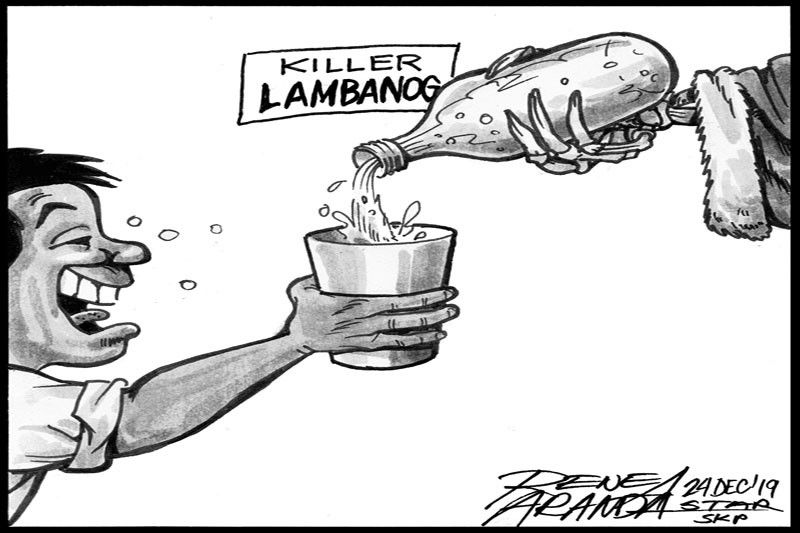EDITORIAL - Toxic wine

From May to December last year, the Food and Drug Administration recorded 21 people dying in Luzon after consuming lambanog or coconut wine. Most of the deaths were recorded in the holiday months of November and December.
Of the 44 people who were hospitalized for methanol poisoning in 2018, four died in Capas, Tarlac and two in Antipolo City, Rizal. In Laguna, three died in Sta. Rosa, three in Calauan, three in Calamba and two in Luisiana. Four tricycle drivers died in Novaliches, Quezon City.
Following the deaths and subsequent warnings from health authorities, sales of lambanog plummeted as people were uncertain about which products were safe for consumption. But that was a year ago.
Yesterday, the municipality of Rizal in Laguna declared a state of emergency after 10 residents died and over 250 others were hospitalized due to lambanog poisoning. The Laguna government has banned the sale of lambanog throughout the province while an investigation is being conducted.
After centuries of use in this country, why did lambanog become a fatal beverage? Authorities established the culprit to be high levels of methanol, which can cause blindness and permanent neurologic dysfunction apart from death.
The Food and Drug Administration stressed the importance of proper fermentation to produce ethanol for lambanog. If the fermentation process is wrong, poisonous methanol can be produced, which the body cannot metabolize. The methanol turns into toxic acid and goes to the liver. Those who are poisoned need immediate medical treatment, according to the FDA. It stressed the importance of buying only FDA-certified lambanog.
Filipinos have been imbibing lambanog for ages, however, with no need for a seal of approval from any food agency. The government will have to launch a campaign to raise public awareness about the risks posed by drinking lambanog that has not passed food safety tests. People can check out the FDA website for regular updates on the blacklisted products.
After these latest deaths, it will take much effort to restore public trust in the safety of coconut wine. With sales again plummeting in this peak food consumption season, registered Lambanog makers have lamented that they are all suffering from the carelessness of others. If the lambanog industry wants to survive, all the players must cooperate fully with food safety agencies, police their own ranks and impose stringent quality control.
- Latest
- Trending






























